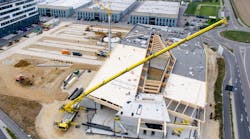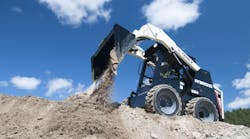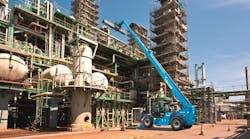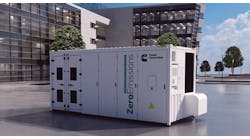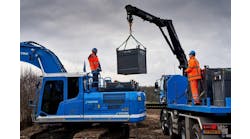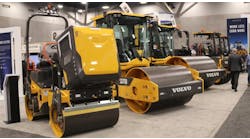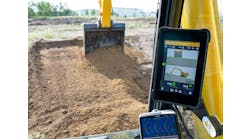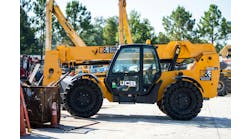Konecranes to Acquire Terex Material Handling and Ports Business for $1.3 Billion
Terex has agreed with Finland’s Konecranes to mutually terminate its merger agreement and for Konecranes to acquire Terex’s Material Handling and Port Solutions business for about $1.3 billion. The consideration paid would be $820 million in cash and 19.6 million newly issues shares of Konecranes, which, upon completion, would give Terex a 25 percent-ownership share of Konecranes and have the right to nominate two directors to its board.
The transaction, subject to customary regulatory approvals and the approval of Konecranes shareholders, is expected to close in January 2017.
The agreement provides Terex with the ability to continue to pursue discussions with China’s Zoomlion. Terex has the right to terminate the agreement by May 31 for a fee of $37 million if Terex and Zoomlion agree on a sale of Terex as a whole.
“The sale of the MHPS business to Konecranes is good for our customers, team members and shareholders,” said John Garrison, Terex president and CEO. “This transaction is expected to be accretive to Terex earnings per share and preserves the strategic logic for the original merger of equals. In addition, it will significantly reduce Terex’s debt levels, improves our balance sheet and gives us longer term financial flexibility to invest in our business and buy back shares. As a 25 percent shareholder of Konecranes, Terex will also be able to share in the dividends, synergies and economic upside of the combined business.
“This new transaction structure offers other substantial benefits to Terex shareholders as well. Importantly, the transaction locks in the benefits of the MHPS sale while preserving the ability for Terex to continue discussions with Zoomlion on a potential sale of the company at $31 per share with the MHPS business or, alternatively, for the sale of Terex without the MPS business.”
Terex and Konecranes agreed on a merger of the two companies in August 2015. Integration steps were already being undertaken when Zoomlion came forward in January with an unsolicited bid to acquire Terex for $30 per share, which was later increased, at Terex’s request, to $31 per share. Discussions between the firms have been ongoing.
The acquisition by Konecranes would improve its position as a leader in the industrial lifting and port solutions market. Terex MHPS is a leading supplier of industrial cranes, crane components and services under the Demag brand, as well as port technology with a range of manual, semi-automated and automated solutions under several brands. Terex MHPS has manufacturing operations in 16 countries on five continents and operates a sales and service network in more than 60 countries.
Konecranes chief executive Panu Routila said on a conference call with reporters that it was the MHPS business that originally attracted it to Terex and the expected synergies from a revised transaction were largely in line with those anticipated from a full merger.
Konecranes officials said the acquisition will add critical mass and scope to its global organization, provide major earnings potential from digitalization, reach sale benefits and synergies in industrial lifting, and create a global footprince. Konecranes’ presence in Northern Europe, North America and China combined with Terex MHPS’ presence in Germany, Southern Europe, South America and Southeast Asia would improve its ability to serve global customers.
The Terex-Zoomlion merger has the potential to be scrutinized by the Committee on Foreign Investment in the United States, the regulatory body that can potentially block any transactions that affect U.S. security. According to sources close to the situation, possible CFIUS concern about a deal with Zoomlion could be lessened with Terex’s ports business sold to Konecranes rather than Zoomlion, which has close ties to China’s government.
A potential full merger between Terex and Konecranes recently became less attractive to Terex, according to sources, because changes in U.S. regulations regarding “tax inversions”, by which U.S. companies relocate headquarters to other countries for tax benefits, have made such mergers less attractive to U.S. companies.


